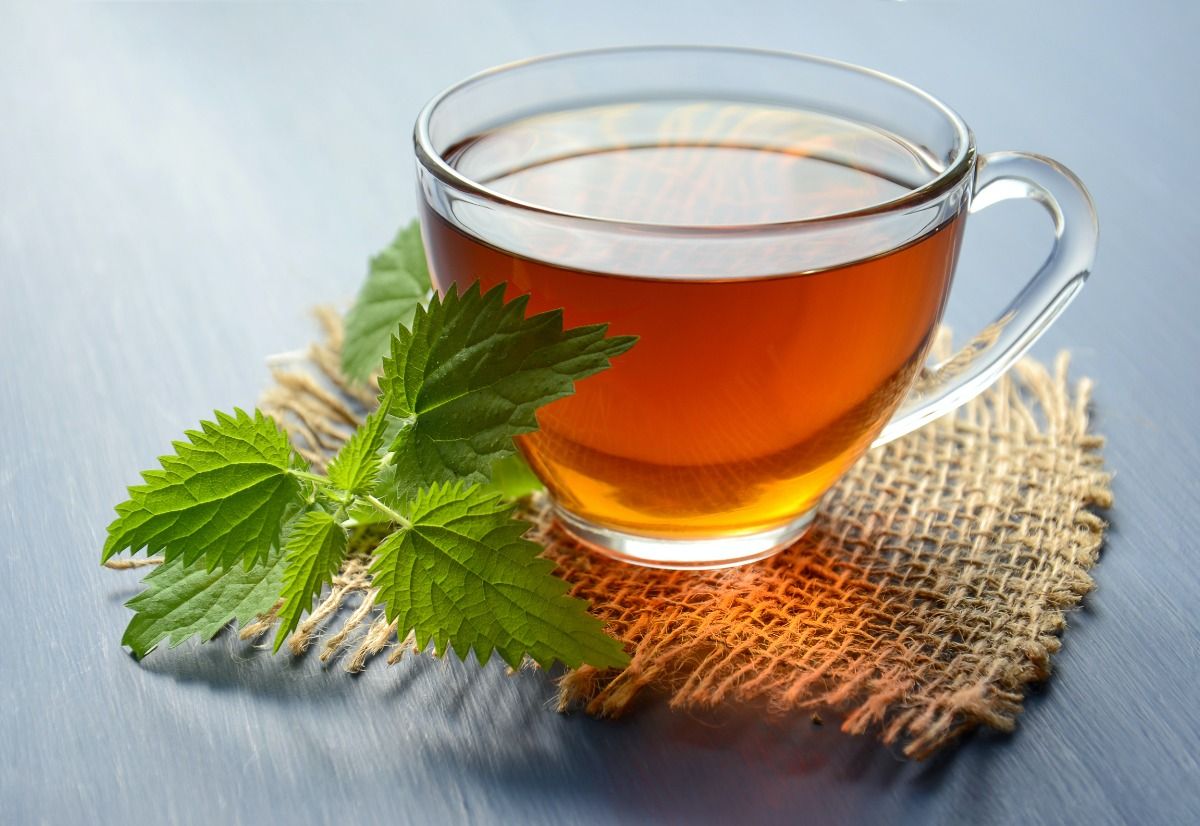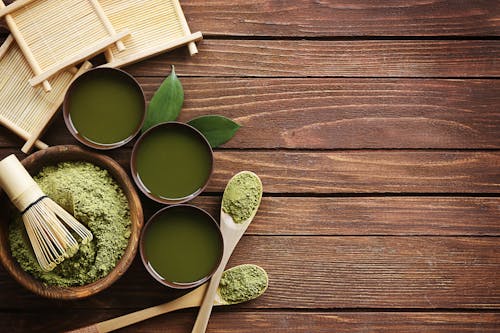
Understanding the health benefits of different types of tea will help you figure out which type of tea you should drink to remedy various ailments. After water, tea is the 2nd most consumed beverage in the world, because of the many health benefits. Tea is also a very significant part of certain cultures around the world, such as the Chinese or Japanese, who celebrate milestones with tea ceremonies. The British are known for welcoming guests with a cup of warm tea and are proponents of afternoon high tea with scones and canapes. All around the world, however, the habit of drinking tea is being adopted as part of an overall healthier lifestyle.
The health benefits of different types of tea include relaxation benefits, natural sleep aids, better digestion, weight loss benefits and more. If you want a healthy drink with no liquid calories that provide significant health benefits, you should look into tea. You can drink tea hot, lukewarm, or cold. Some even transform tea into yoghurt or ice cream.
History tells us that the Chinese accidentally discovered tea in 2737 BC. A tea leaf accidentally fell into Emperor Shennong’s hot water, and he liked it very much. And since then, people have been enjoying black tea and many other tea leaf variants.
Various Health Benefits of Different Types of Tea
Why is drinking tea on a daily such a fantastic lifestyle change to adopt? Since tea is naturally free of calories, consuming this herbal beverage instead of other drinks can aid in weight loss. The habit of drinking tea instead of sugary juices or canned sodas is a very healthy habit to practice.
Drinking tea at every mealtime is known for aiding digestion. An evening tea brew can also be very calming and reduce stress. Besides, drinking various types of tea leaves proffers many different health benefits. Let’s take a look at the health benefits of different types of tea:
Ginger Tea: Soothes Digestive Issues, Reduces Bloating and Fights Off Cramps
Ginger is a native Asian root that’s well-known for adding a hint of spicy taste, earthy feel, and unique scent to stir-fries, soups, stews, and sauces. This root crop is also known for treating a host of ailments since ancient times because it is rich in antioxidants and vitamins (especially vitamin C and B). Thus, it is not surprising why ginger tea is becoming very popular worldwide.
Ginger tea is one of the top remedies for pregnant women as it helps fight morning sickness and nausea by providing digestive comfort. Apart from that, drinking ginger tea can do the following for all people:
- Fights inflammation
- Reduces bloating and stomach discomfort
- Alleviates sore throat and colds
- Helps ease menstrual cramps
- Eases stomach pain and aids in digestion
- Reduces nausea
- Reduces migraines and headaches
- Reduces blood pressure
- Aids in weight loss
Pro tip: If you accidentally overeat, and your stomach feels sick, drink a warm cup of ginger tea. You can make your tea by boiling a few slices of peeled, raw ginger with two cups of water. The more ginger you add, the more potent it is. You can also add lemon or honey to make your brew tastier. Alternatively, you can buy ginger powder or ginger tea bags.
Some people buy a box of ginger tea, and add their own raw ginger to it.

Green Tea: Speeds Up Metabolism, Aids in Weight Loss and Offers a Healthy Dose of Caffeine
When it comes to all the tea variants, people are most familiar with green tea. It is dubbed as the most popular tea in many parts of the world, especially in Japan and China. Green tea is also a very popular alternative to coffee. Since this tea is highly in demand, you will find many varieties of green tea such as:
- Matcha
- Ryokucha
- Bancha
- Sencha
- Genmaicha
- Hojicha
- Kukicha
Matcha is the most popular. It is the powdered type of green tea that has stood at the forefront of Japanese culture for decades. It has also become popular in the West because of its unique flavour and benefits. In fact, many chefs have transformed matcha into healthy desserts like ice cream, cheesecake, tarts, creampuffs, and the like.
But no matter how you consume green tea, whether a powder, loose tea leaf, tea crystals, or in a bag, you will enjoy the taste and the health benefits. The nutritional component of green tea is that it is very high in antioxidants, particularly EGCG or epigallocatechin gallate. Antioxidants curb oxidative stress, help with cell repair, and boost the immune system to keep diseases at bay.
One study showed that matcha has the most EGCG levels, making it three times more potent than regular green tea. Noteworthy, black and green tea (even oolong and white tea) hail from the same mother plant: the Camellia sinensis. However, the leaves are processed differently, which gives them different tea colours and flavours. For instance, black tea is wilted and oxidized, while green tea is not wilted and unoxidized.
Besides, if you look at many weight loss supplements, you will notice that green tea extract is one of the main ingredients. Why? That’s because this wonderful tea leaf is noted to enhance weight loss. In addition, studies proved that it speeds up the metabolism and promotes faster burning of calories and fats.
Black Tea: Natural Energy Boost and Lowers Blood Pressure
This tea is another famous tea consumed all over the globe because of its very light, nutty, and refreshing flavour. Moreover, it is very popular for its different breakfast varieties because it contains caffeine and an amino acid called L-theanine. Studies say both elements contribute to alertness and focus, which help you start the day right.
In fact, the National Cancer Institute noted that black tea accounts for about 75% of the world’s tea consumption. You may know black tea for its other names including:
- English breakfast tea
- Earl grey blend
- Darjeeling
- Ceylon
- Keemun
- Assam
Black tea is known for its many health benefits, such as supporting your vitality and cardiovascular health. In addition, it is touted for reducing bad cholesterol and helping manage blood sugar levels. Besides, this tea variant is rich in polyphenols. These are antioxidants which include theaflavins, catechins, and thearubigins. Studies show that these elements can help do the following:
- Minimize risk for diabetes
- Help manage weight to prevent obesity
- Reduce oxidation and fight free radicals
- Lowers blood pressure
White Tea: Provides Antioxidants and Fights Free Radicals
Like oolong, black, or green tea, white tea is made from the same Camellia sinensis plant. However, white tea is the least processed and refined among all the tea products. It is picked and harvested early before the flower buds and leaves are fully open.
Since they come from the same family, white tea shares the same health benefits as black and green tea, such as: promoting heart health, improving circulation, lowering blood pressure, and providing antioxidants. Furthermore, since it is less processed, the tea contains higher quantities of catechins, making it even better at fighting free radicals.
Besides, white tea has lower levels of caffeine, making it the ideal drink before bedtime. It also has the component theanine, which helps calm frayed nerves. This will make you feel relaxed without making you feel tipsy or drowsy.
Oolong Tea: Digestive Aid and Weight Loss Aid
The word oolong is associated with Chinese tea. Though it is crafted from the same plant mentioned above, it is processed differently. Some tea connoisseurs say that oolong is the middle ground of black and green tea. It is a bit more oxidized than green tea but slightly less oxidized than black.
This delicious tea can vary in taste depending on preparation or how long you steep it. Typically, it is amber in colour. The Chinese have always drunk this with their meals because anecdotal evidence suggests that it aids in digestion and helps control body weight.
Studies have also affirmed that drinking oolong tea greatly supports your metabolic rate. This means burning more calories and oxidizing fat more efficiently. So if you need help with weight loss and maintenance, this fragrant and flavorful tea will help you do that.
Chamomile Tea: Relaxation Benefits and Boosts Immune System
This tea gets its name from the chamomile flowers where it is derived from. This tea is rich in flavonoids, regulating cell activity and fighting off harmful free radicals. Taking this tea will make your body work more efficiently and boost your immune system. Many drink this before bed because it is very calming and promotes good sleep.
If you ask your grandma, she will most likely confirm that this tea has been an old school remedy for easing period pain, and now modern medical findings confirm that chamomile is truly effective in treating dysmenorrhea.
Besides, its components help mitigate complications from diabetes such as vision loss, kidney issues, and nerve failure. A few studies also state that it effectively prevents the onset of osteoporosis in women because it promotes bone density and has anti-estrogen properties.
Hibiscus Tea: Loaded with Vitamins and Minerals
Another flowery tea is hibiscus, which is often made from the calyx or the protective layer around the plant’s flower. Hibiscus tea is loaded with vitamin C, with 20 times higher content than oranges, chilli, or tomatoes. It also contains the following vitamins and minerals:
- Vitamin A
- Vitamin D
- Vitamin B1 and B2
- Calcium
- Potassium
- Iron
A study reiterated that drinking 3 cups of hibiscus tea per day lowers people’s moderately elevated blood pressure readings. For this reason, you must consult your doctor before taking this tea, especially if you have prescription medication. It could potentially interfere with your daily maintenance medicines.

Chai Tea: Delicious Flavors, Boost of Energy and Inflammation Fighter
Anyone up for a chai latte during a blustery autumn or winter day? It’s the perfect concoction for warming up your stomach. Most people love it because it is a very delicious, flavorful alternative to coffee for waking you up. It provides a good dose of energy to help kickstart your day.
Unbeknownst to most, chai tea should not be called that because it is redundant. Chai means tea, so saying chai tea means “tea tea.” The more accurate name for this is masala chai or “spiced tea” because this flavorful black tea drink is indeed spiced with the following:
- Nutmeg
- Cardamom
- Saffron
- Ginger
- Fennel
- Clove
- Star anise
- Peppercorn
Since it is a beautiful mix of many different compounds, chai provides a broad range of health benefits. For example, nutmeg and ginger help fight inflammation. Cardamom promotes good circulation; fennel supports milk production in breastfeeding women; clove improves liver health, and so much more.
Drinking Tea is Just One Component of a Healthy Diet
As you can see, the health benefits of different types of tea are very impressive. This tea guide is not even exhaustive (there are more types of tea that people love such as lavender, ginseng, moringa, red tea, etc.) It’s clear that tea offers you numerous health benefits, and is a great addition to your diet. Unlike chemically produced soda or sugary drinks, tea is truly a wonderful bounty from mother earth that helps your body fight off various ailments.
Tea is only one component of a healthy diet. To get a full diet and nutrition report based on your DNA and to find out what the optimal diet type for you is, based on your genetics, get a CircleDNA test. A DNA test can certainly help you figure out what you should be consuming more or less of.






